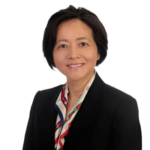Webinar: Navigating the Chinese Patent System: What U.S. Patent Counsel Need to Know, Leveraging Recent Amendments
Events  Letao Qin November 17, 2022 | 10:00 AM PT
Letao Qin November 17, 2022 | 10:00 AM PT
Navigating the Chinese Patent System: What U.S. Patent Counsel Need to Know, Leveraging Recent Amendments
Protecting IP Rights in China, Changes After the Phase One Trade Deal, Understanding Current Litigation Trends, and More
A live 90-minute premium CLE video webinar with interactive Q&A
Thursday, November 17, 2022 | 10:00 AM – 11:30 AM – PT
Join Rimon Partner Dr. Letao Qin in this CLE webinar which guides U.S. patent counsel and companies on Chinese patent law and what they need to know about the Chinese system. The panel will address changes to the Guidelines for Examination and new draft amendments, current litigation trends, and the AUCL. The panel will offer U.S. companies and counsel best practices for increasing IP protection under the Chinese system.
Description
Protecting IP in China is essential to any global company’s overall strategy. By obtaining and enforcing Chinese patents, U.S. companies can directly pursue alleged infringers in China. China may be favored for patent infringement litigation because patent infringement cases in China are fast-paced and low-cost and because Chinese IP courts are not reluctant to order injunctions. For example, the average time from filing to a verdict at Beijing’s IP court is four months vs. the U.S. courts’ two-plus years. U.S. companies and their counsel must understand the Chinese IP system to leverage its advantages effectively.
The China National Intellectual Property Administration (CNIPA) released its Draft Revised Patent Examination Guidelines on Aug. 2, 2021, seeking to improve patent quality and increased efficiency in patent examination.
On June 1, 2021, China’s newly amended Patent Law went into effect. These amendments provide patent term extensions for certain patents, patent linkage, increased damages, and partial design patents. Revised final Implementing Regulations of the Patent Law are awaited. Additionally, China is working on legislative and judicial changes to other essential IP rights.
Further, companies seeking to protect intellectual property in China should also consider the Anti-Unfair Competition Law (AUCL). Used mainly by Chinese companies to resolve claims that should but cannot be addressed by current IP laws, Chinese authorities have increased enforcement of the AUCL, resulting in substantial fines for companies.
Listen as our authoritative panel of patent attorneys guides practitioners on Chinese patent law and the Chinese system. The panel will discuss the new amendments to the Guidelines for Examination and current litigation trends. The panel will also discuss the AUCL and offer best practices for U.S. companies and counsel to operate in the Chinese system and increase IP protection.
Outline
- Chinese patent law and what U.S. patent counsel and companies need to know
- Guidelines for Examination amendments
- Key changes in the Fourth Amendment of the PRC patent law
- Current litigation trends
- Best practices for operating in the Chinese system to increase IP protection
Benefits
The panel will review these and other priority issues:
- How the amendments to the Guidelines for Examination change patentability in China
- The role of the AUCL in IP enforcement in China
- Litigation trends in China and the advantages of using the Chinese IP system
For more information or to register, click here
Letao Qin has extensive experience as a patent attorney. Focusing her practice in all aspects of IP transaction, patent and trademark prosecution and procurement, Dr. Qin has advised Fortune 500 companies, universities, start-ups, and individual inventors to identify, capture, and protect innovations. Her practices include IP counseling, due diligence and clearance for business transactions that involve high-tech and emerging technologies such as AI, robotics, and autonomous driving vehicles. Dr. Qin also specializes in patent and trademark procurement and proceedings at the patent and trademark appeal boards. She has drafted PCT and US utility patent applications in the technical areas of emerging technologies, electrical and telecommunication technologies, computer software, medical devices and optical instruments.
Pursuant to applicable rules of Professional Conduct, this email and linked materials may constitute advertising. The hiring of a lawyer is an important decision that should not be based solely upon advertisements. Before you decide, ask us to send you free information about our qualifications and experiences.





